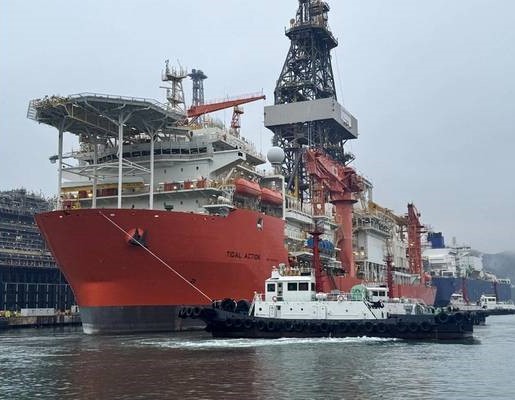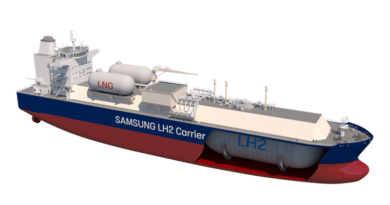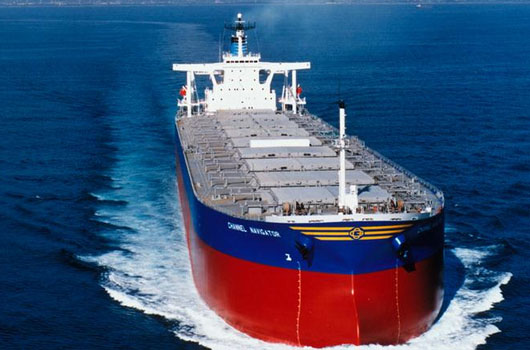Hanwha to invest $72M in Philly Shipyard to build LNG carriers

Hanwha Group plans to invest 100 billion won ($71.8 million) in Philly Shipyard, its U.S.-based shipbuilding unit, as part of a long-term strategy to transform the facility into a high-tech shipyard capable of building 10 vessels annually and generating $4 billion in revenue by 2035.
The investment marks Hanwha’s latest move to solidify its presence in the U.S. market following its acquisition of the shipyard last year. According to shipbuilding industry sources on Tuesday, the group recently brought Korean analysts to the site to unveil its vision, which includes the construction of liquefied natural gas (LNG) carriers — a first for any U.S. shipbuilder.
Roughly 50 specialists from Hanwha Ocean are currently stationed at the yard, working to enhance production efficiency. The investment will be used to upgrade the dock and implement automation systems throughout the shipbuilding process.
The goal is $4 billion
Achieving the ambitious $4 billion revenue target — more than tenfold last year’s figure and nearly half of Hanwha Ocean’s total revenue — hinges on Philly Shipyard’s ability to produce high-value ships like LNG carriers.
These vessels, which transport gas at minus 163 degrees Celsius (minus 261.4 degrees Fahrenheit), require advanced technology to ensure safe and consistent cryogenic storage. The average price of an LNG carrier, estimated at $260 million, is roughly 30 percent higher than that of a large container ship.
Significant challenges loom
Unlike Korea’s major shipbuilding hubs in Geoje and Ulsan — home to tightly integrated industrial clusters — the U.S. shipbuilding supply chain has eroded. Key sectors, including steel processing, specialty welding, electronics, and precision machinery, have shrunk following the decline of the U.S. shipbuilding industry. Most critical components — from engines to propellers and electronic systems — are now imported.
Labor shortages further complicate Hanwha’s ambitions. In particular, for LNG carriers, which Hanwha Group plans to build for the first time at a U.S. shipyard, the proportion of special welding in construction is high compared to general ships. A large number of skilled welders must be secured, but recruiting such labor within the United States has proven difficult.
Even at domestic sites, the shortage of welders needed for LNG carrier construction is making it difficult to meet delivery deadlines. If skilled domestic workers are dispatched to Philly Shipyard, it could lead to a decline in the quality of ships being built in Korea.
In addition, there are growing concerns that high labor costs compared to Korea could lead to an increase in ship prices in the future.
“As the U.S. government has decided to expand its national strategic fleet to 250 vessels, government support such as subsidies will be necessary for Hanwha Group to secure profitability,” said a shipbuilding industry spokesperson.
Source: Korea JoongAng Daily




